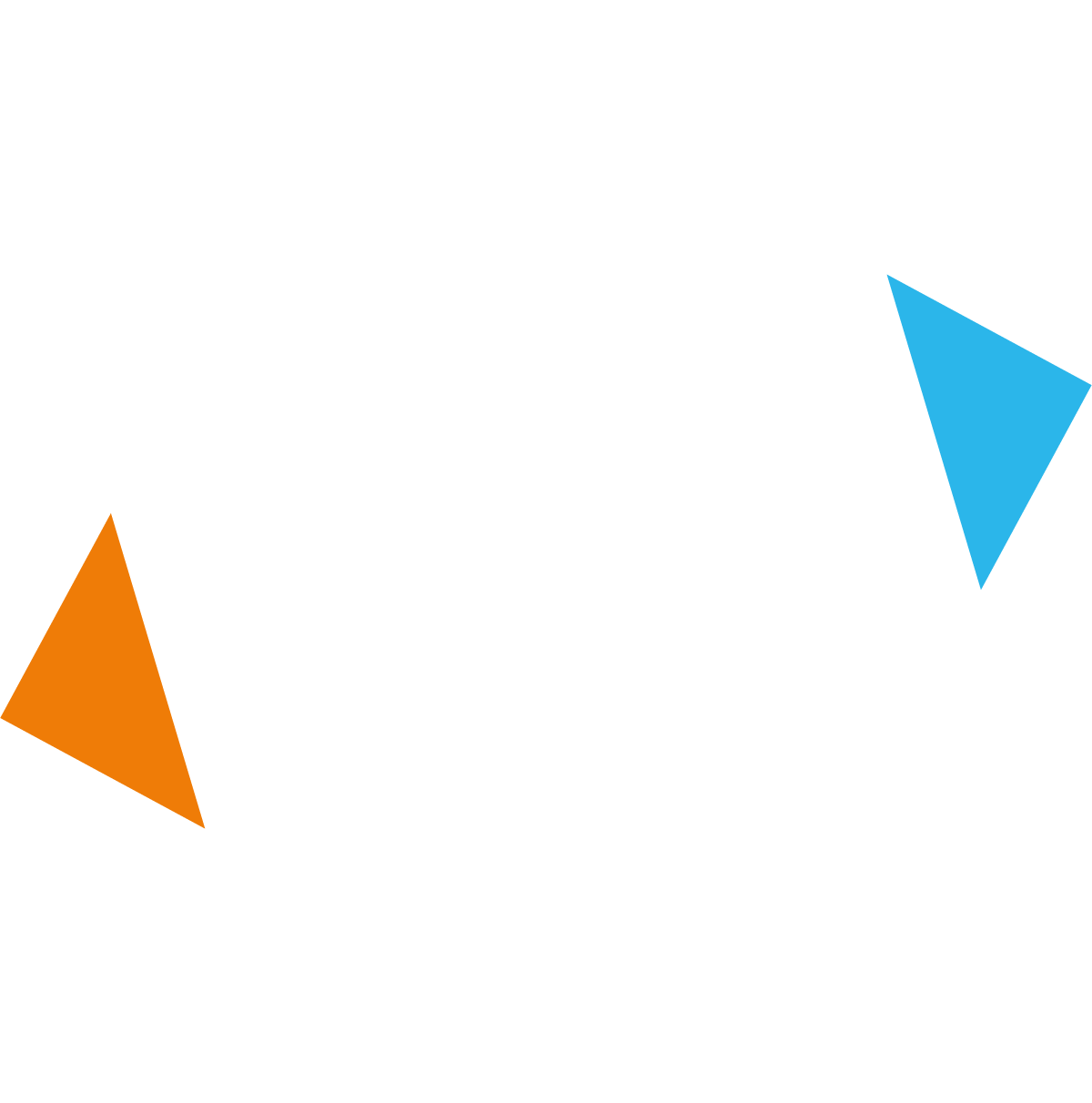7 African Femtech Startups to Watch
Femtech (female technology) is a term used to describe health software and tech-enabled products designed with women’s health and wellbeing in mind.
Since it's International Women’s Day 2022, there’s no better time to explore healthtech companies, products and services that work to highlight and address the historical and systemic exclusion of women’s health within the healthcare sector.
Here are seven incredible femtech companies that are founded by or made to serve African women.

1. Nextwear Technology
Bolarinwa Kemisol is the CEO and Founder of Nextwear Technology, the very first wearable technology startup in Nigeria, and inventor of a smart bra that can detect breast cancer in its earliest stages.
Bolarinwa is a Robotics Engineer and women in STEM advocate, whose work in the field of wearable technology is groundbreaking. Using nanotechnology, the smart bra uses small sensors that are simple and safe to use, cause no harm to body tissue, and mean that women can conduct a check in the privacy of their own home in just a few short minutes.
The invention is not designed to replace a standard bra or be worn for extended periods of time, but rather just to conduct a check, eliminating the need for a hospital visit for a mammogram appointment.
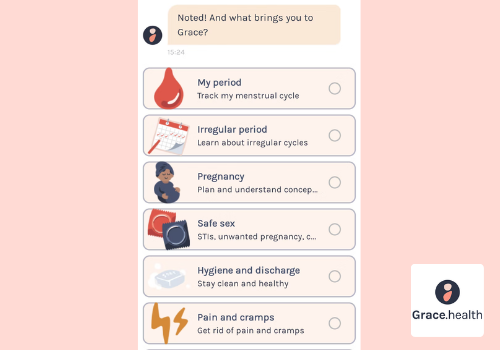
2. Grace Health
Grace Health is home to the chatbot Grace, the number one female health service trusted across East and West Africa. The chatbot helps girls and women with a range of women's issues, from menstrual cycle tracking, pregnancy and fertility resources, and insights into sexual health and contraceptives.
Founded by Thérèse Mannheimer, the app is used by over 800,000 women and is medically approved, uses only a small amount of storage and mobile data, and provides a 24/7 chat service with personal, private, and impartial advice and information.

3. CHIL AI Lab
Ugandan-based healthtech company CHIL AI Lab is battling cancer with a range of impressive products and services, including non-invasive self-testing kits that utilise machine learning and AI to diagnose cervical and breast cancer. Drone-powered transportation means that cervical cancer specimens can easily be transported from remote, rural villages directly to laboratories.
Users can also use an AI-powered chatbot app that allows patients to confidentially, securely and remotely connect with doctors for appointments, referrals, and first-hand information about breast and cervical cancer.
The company was among ten startups that were handpicked in 2019 to participate in PitchDrive II, a project co-sponsored by Google.

4. Uteroo
Uteroo is a menstrual cycle tracking app, launched in 2018 by South African software developer Pabi Moloi, which allows women to track and predict when to expect their next period.
With shame, stigma, and misinformation surrounding the topic of menstruation in many parts of Africa, Uteroo can save girls and women from the embarrassment of coming on their period unexpectedly.
A 2014 UN report found that one in 10 girls in sub-Saharan Africa had missed school due to their period, with some girls reportedly losing 20% of their education for this reason. The persistent stigma surrounding menstruation means that it is a source of shame, embarrassment, and mental health challenges - meaning that Uteroo is a potentially life-saving tool.
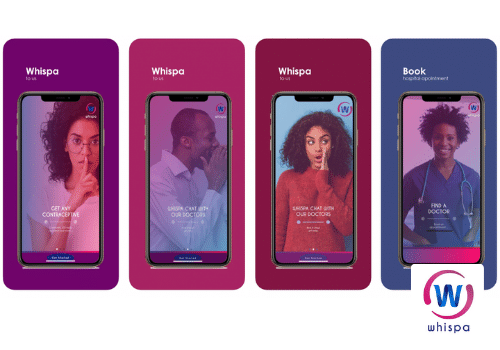
5. Whispa
Morenike Fajemisin is the CEO and co-founder of Whispa mobile app. She is a multi-award-winning pharmacist, with a passion for improving sexual and reproductive health and rights.
The Whispa app provides young people (women in particular) with private, affordable and shame-free access to sexual and reproductive healthcare information. The app’s suite of products and services allows users to connect with doctors via a chat feature about any sexual or reproductive queries or concerns, the ability to book sexual health service appointments, and order sexual health products, including self-testing kits for HIV, condoms, lubricants, and more in discreet packages.
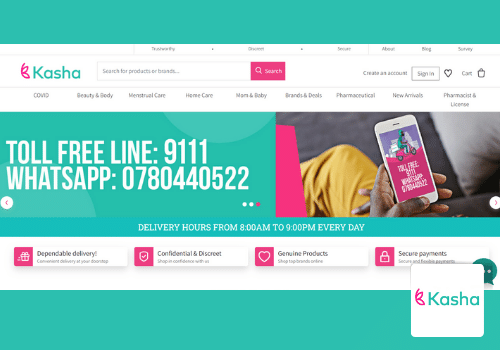
6. Kasha
Think of Kasha as an Amazon marketplace specifically for women’s health and beauty products. Launched in 2016 by Joanna Bichsel, the Rwandan e-commerce platform operates in Kenya and Rwanda and delivers a huge range of products from menstrual care to contraceptives, sexual health testing, pharmaceuticals, beauty products and much more.
Operating in both rural and urban locations, Kasha offers confidential personal care orders via its website, a mobile app, SMS and telephone calls.
Prior to launching Kasha, Joanna’s impressive career has spanned various positions with Microsoft, the Bill & Melinda Gates Foundation, and Board Director for Equity Bank Rwanda and Finserve Africa.
Kasha has successfully raised US$1 million of funding from Swedfund, a Swedish development finance institution, as well as a Series A round of US $3 million, and an undisclosed investment amount from Mastercard.
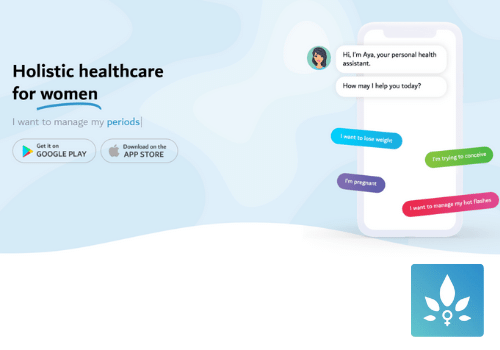
7. Nabta Health
Founded in 2017 by Sophie Smith and Dr. Mussaad Al-Razouki, Nabta Health combines digital and traditional healthcare to address a range of women’s issues from home with its affordable, cutting-edge healthcare and wellness platform.
Serving women across the Middle East, Africa, and South Asia, the personalised healthcare platform offers a range of products and services, including clinical advice, health recommendations, and remote consultations.
Using machine learning, the platform can detect, diagnose and treat chronic diseases and conditions such as Polycystic Ovary Syndrome (PCOS) and treat consequent infertility by providing an earlier diagnosis.
There’s no doubt that the femtech sub-sector presents immense opportunities, as research from Frost & Sullivan suggesting that the femtech market will be worth $50 billion by 2025. And this is particularly true in Africa, where the stigma around women’s healthcare issues such as sexual health and menstruation means that digital tools that provide discreet, confidential and impartial services are invaluable.
Despite this, there’s still a long way to go. The industry is still hugely underfunded, accounting for only 1.4% aggregated capital that flows into healthcare. Hopefully in the next few years, we’ll see an influx of investment, opportunities, and education across the continent that will provide women with access to tools they need, and perhaps even contribute towards shifting cultural perceptions.

